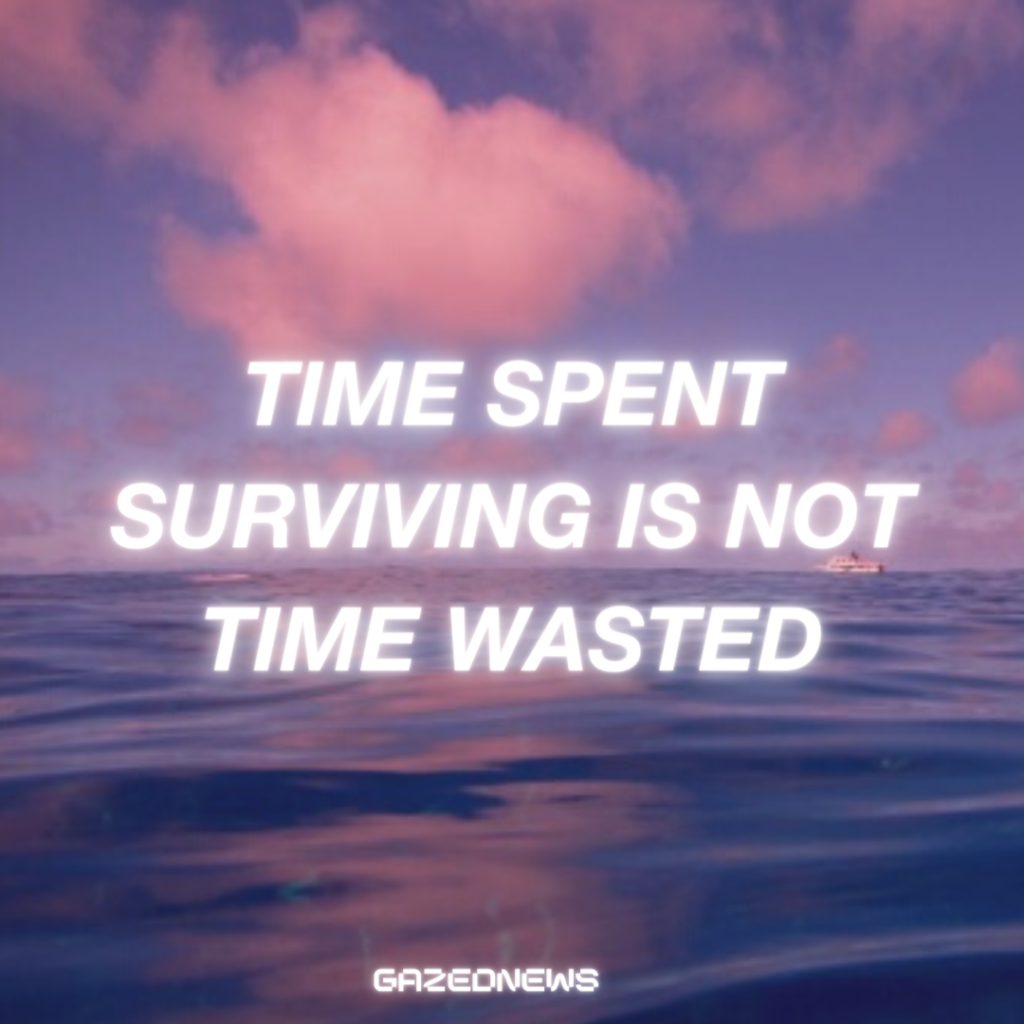Millenials and Gen Z are more anxious and depressed than previous generations according to various studies. One Harvard Business Review study found that half of millennials reported leaving a job for mental health reasons, while that percentage rose to 75% among Gen-Z. Countless headlines constantly decry this generation’s delayed adulthood and the corresponding rate of declining right of passages such as: getting a license, moving out, starting relationships, getting married, and homeownership. These delayed or forgone milestones by a certain age just contribute to the anxiety many young adults already feel from both external and internal pressure. Many are left feeling like they’ve wasted their youth fighting inner turmoil, instead of checking off these formative life experiences as neurotypicals might.
The truth is, time spent surviving is not time wasted. You can not “waste” your youth to time spent successfully fighting depression, anxiety, or anything else that makes it exponentially harder to carry out basic life functions. You should be cheering yourself on with pride to have successfully spent your years fighting the most negative voices inside of you. It’s growth. It’s resilience, and one of the greatest acts of bravery someone can show. To persevere with hope no matter how much negativity may try to engulf the true you.
Not only was this time not wasted, but the grass on the other side is always overly-romanticized — especially by American media. The statistics from millenials and Gen-Z don’t back up this highly romanticized time of teenagehood and young adulthood. Studies show that the majority of young people are not in fact living out a pseudo-inspirational coming-of-age film. Only approximately 61 percent of 18-year-olds in the U.S. had a driver’s license in 2018, compared to 80.4 percent in 1983. Moreover, 52% of young adults in the US are living with their parents. That’s the highest share since the Great Depression.
Teenagehood and young adulthood is highly romanticized by the media which propagates unrealistic standards and just adds internal pressure to the minds of impressionable young people. Life should not peak when you’re still in school, without the financial freedom or life skills to do anything. To claim it does is frankly, quite sad. It presupposes that life is downhill from there. Life can always go in an upward trajectory — it’s about taking the right deliberate actions to build it.
Low-income students or those from underprivileged backgrounds work on building a better life instead of having the privilege of fun in their early young adulthood. Not everyone has the financial freedom in college to have as much fun as someone with an inheritance and no responsibilities. In 2017, 43 percent of all full-time undergraduate students and 81 percent of part-time students were employed while enrolled. Low-income working students for one, work longer hours than their high-income counterparts. They also are more likely to be black or Latino according to a 2018 report from the Center on Education and the Workforce at Georgetown University. Low-income working students are more likely to work full-time than those who are high income (26 percent versus 22 percent).
Not only did you not miss out on the neurotypical experience of no responsibilities and careless fun because it doesn’t exist for everyone, but you achieved a much greater feat. Being alive when the negativity might have made just existing and functioning in society much harder.
For many people, especially highly successful people, life gets better as they get older. Life can always move in an upward trajectory regardless of arbitrary limits like age that society might try to impose on one. It’s all about addressing your mental health, looking towards your future, and deliberately building the life you always desired — no matter how slowly.




Leave a Reply